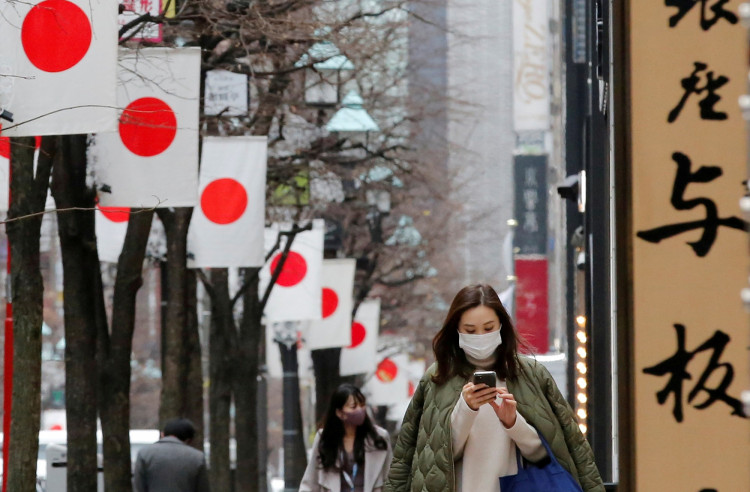Japan's housing market appears to have emerged from its "lost three decades." On December 20, statistics released by Japan's Real Estate Economic Institute showed that the average sale price for new condominiums in the capital region, encompassing Tokyo, Kanagawa, Saitama, and Chiba prefectures, reached a staggering 82.5 million yen (approximately 410 million yuan), marking a 36.7% increase year-over-year. This surge, which occurred just two months after the last rise, set a new record high for November.
In Tokyo's 23 wards specifically, the average sale price for new condominiums soared to 128.11 million yen (about 640.4 million yuan), a 50% increase compared to the previous year, breaking the 100 million yen barrier for the first time in four months since July. Outside of these wards, new condominium prices in Tokyo rose by 15.6% to 50.62 million yen.
However, the escalating housing prices are impacting the purchasing power of Japanese residents. In November, the capital region sold 2,743 new condominiums, a 4.3% decrease from the same period last year, marking two consecutive months of sales below the previous year's figures and significantly lower than the anticipated 4,000 units.
In Tokyo's 23 wards, sales increased by 8.4% to 1,029 units, while areas outside the wards saw a 63.4% increase to 446 units. Kanagawa Prefecture experienced a 3.4% growth, and Chiba Prefecture saw a 12.7% increase. However, Saitama Prefecture's sales plummeted by 68.9% to 197 units.
Not just new homes, but the prices for second-hand homes in the capital region are also hitting record highs. According to data from Tokyo KANTEI, a Japanese real estate research firm, the average asking price for a second-hand condominium (family residence) in Tokyo's central six wards (Chiyoda, Chuo, Minato, Shinjuku, Bunkyo, and Shibuya) was 107.91 million yen (about 52 million yuan) per 70 square meters in October, up 1.8% month-over-month, marking the highest price since records began in 2002.
Media analysis suggests several factors driving up housing prices in Japan, including rising land prices, continuous increases in construction costs, the launch of luxury properties, and the significant demand from overseas investors.
Why Are Japan's Housing Prices Rising? Firstly, the increase in land prices has driven up the cost of new homes in Japan. The Ministry of Land, Infrastructure, Transport, and Tourism announced in September that the national benchmark land price for 2023, including residential and commercial land, rose by 1.0% compared to last year, marking the second consecutive year of positive growth.
Additionally, the depreciation of the yen has made new homes more sensitive to raw material costs. With the yen continuously weakening and commodity prices remaining high from 2020 to 2022, construction costs in Japan have surged significantly. Properties built during this period of high costs, when completed and launched in 2023, directly led to a step-up in housing prices.
Moreover, the influx of overseas investment into Japanese real estate has played a significant role in driving up prices. For foreign buyers, investing in appreciating property with a depreciating yen is an attractive proposition. The Bank of Japan has maintained low interest rates and an ultra-loose monetary environment, making Japanese real estate particularly appealing to American investors.
Media reports indicate that the American firm Blackstone Group owns over one trillion yen in real estate in Japan, including apartments, office buildings, and data centers. Singaporean investment fund QIP launched a fund in early June targeting residential properties in major Japanese cities, with a total investment of 40 million dollars.
Some analysts suggest that with the end of the dollar's interest rate hike cycle and the Bank of Japan's exit from negative interest rate policies, the yen is poised for a rebound. Even if financing rates rise slightly, Japan's status as a "low-interest haven" remains prominent compared to high-interest financial leverage globally.
In the 2023 ranking of "Attractive Cities for Investment in the Asia-Pacific Region" voted by foreign investors, Tokyo topped the list for the fourth consecutive year, surpassing Singapore, Sydney, and other locations.
Additionally, the continuous net inflow of population into Tokyo has been a factor in driving up housing prices. With Japan's population currently at 122 million and over 38 million residing in Tokyo, accounting for nearly 30% of the total, the city's population continues to grow despite a national trend of declining numbers. This explains why prices for new condominiums in Tokyo's 23 wards remain high.
For 2024, analysts predict that as Japan further restricts the daily working hours of truck drivers and construction workers, labor costs will continue to rise, inevitably leading to further increases in housing prices.






